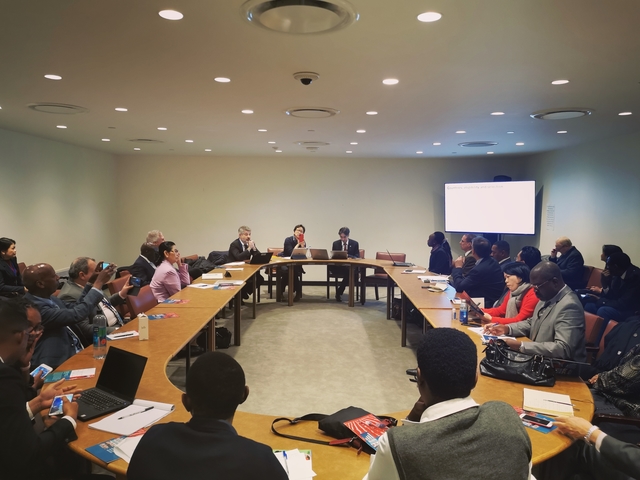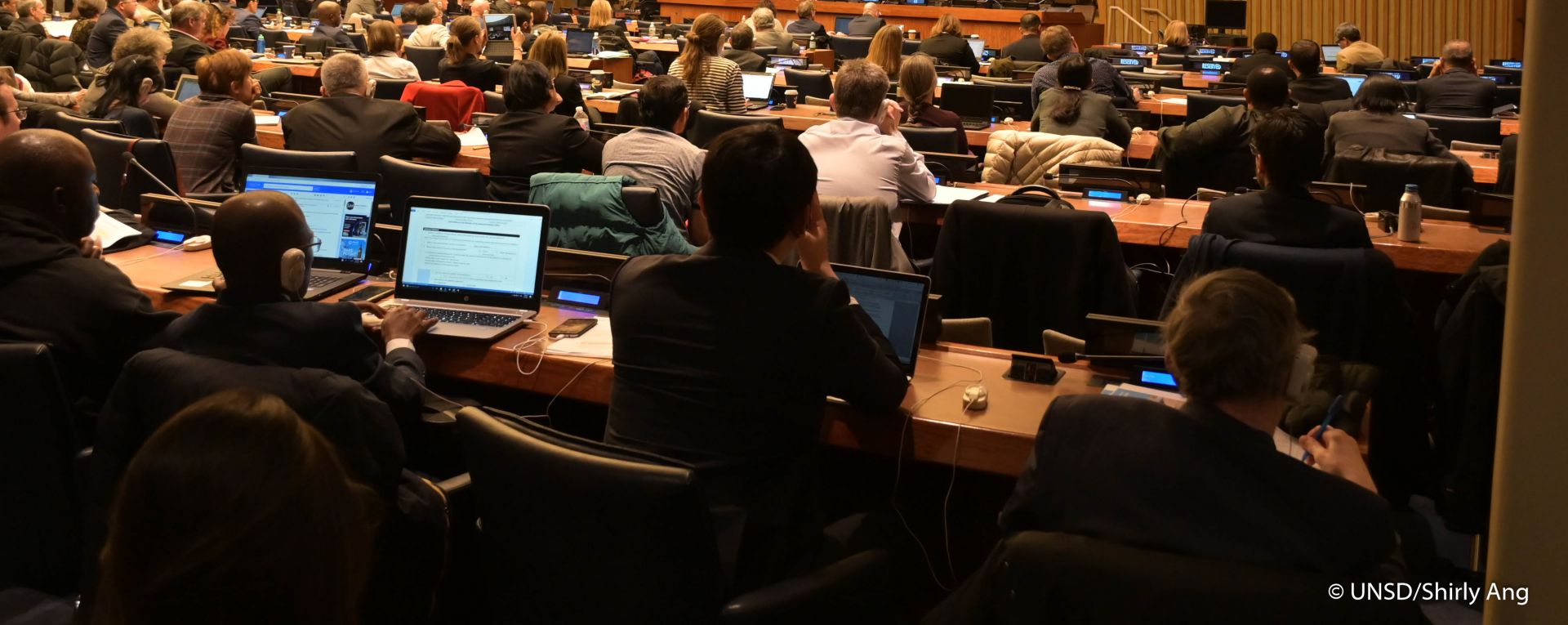United Nations Statistical Commission side event on the 50x2030 Initiative
Haishan Fu, Development Data Group Director at the World Bank coordinated the session and the debate among the 40 participants and the Program Manager of the Initiative, El Iza Mohamedou, who joined remotely.
José Rosero Moncayo of FAO and Gero Carletto of the World Bank presented the state of advancement of the Initiative and in particular its different features of interest to partner countries, pre-conditions and criteria for country eligibility, and details on implementation, financing and ownership of results.

As the 50x2030 Initiative prioritizes the implementation of an Integrated Agricultural and Rural Survey Program, two countries presented their practices and lessons learned.
Flavia Keyago Uma, from the Uganda Bureau of Statistics, presented the experience of Uganda which has worked to integrate two existing and well-tested surveys into the Integrated Agricultural and Rural Survey Program that will go into the field in 2020. In particular, the reasons for choosing to integrate the two surveys were explained, together with the methodological principles followed. Uganda also explained the advantages of the Integrated Survey, such as quality and cost efficiency in the production of unique and timely sets of agricultural data. An increased and improved use of human resources and trained staff was also pointed out.

Hang Lina, Director General of the National Institute of Statistics of Cambodia, presented the characteristics of agricultural statistics in Cambodia and the existing data gaps in the different types of agricultural domains, with a view to seeking possible synergies between their agricultural surveys and socio-economic survey. The main actors of the Cambodia Agricultural Statistical System were also presented, serving as an example of the many stakeholders and goals that need to be tackled and reached by an eligible country that joins the Initiative, including its commitment to prioritize agricultural statistics and produce SDG indicators, among others.
Before opening the floor for discussion, Pierella Paci from the Poverty Global Practice of the World Bank highlighted the commitment of the World Bank to the Initiative, in particular with regard to supporting the possibility to leverage further funding for the Initiative from IDA funds, and especially regional IDA funds, which are made available to countries to accelerate progress towards the SDGs. Following the approval of the IDA19 package, such funds, whose access and focus is presently in the planning stage, are available to requesting countries to match funds from other sources and could be used also to match Initiative funding and to exploit technical synergies among programs.
The message about the innovative nature of the Initiative and the importance of creating national sustainable agricultural data systems, was reaffirmed by participants.
